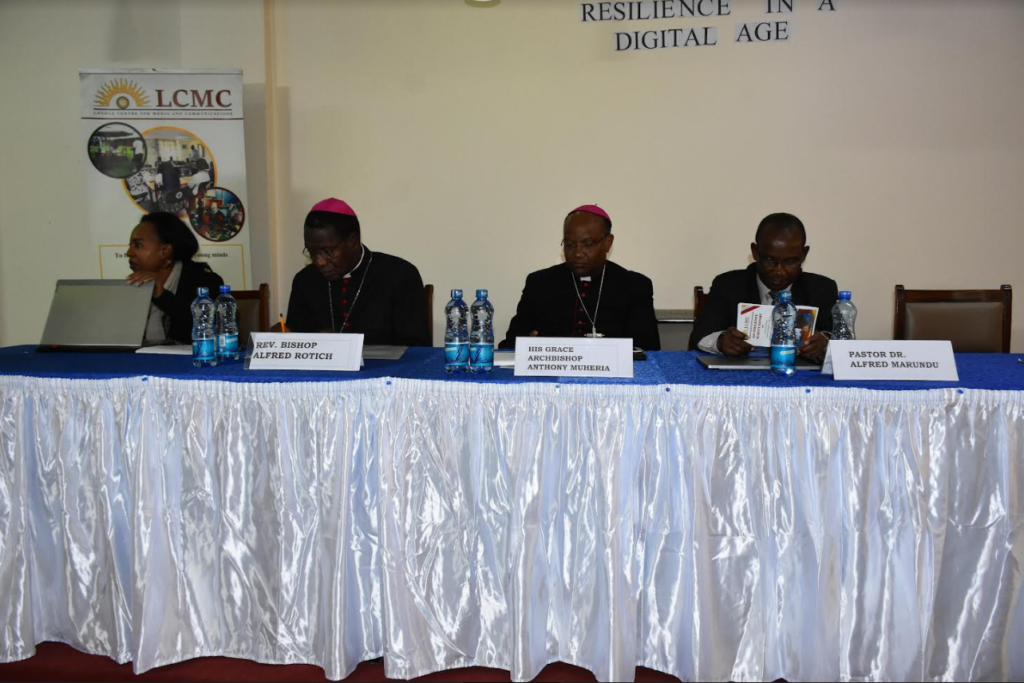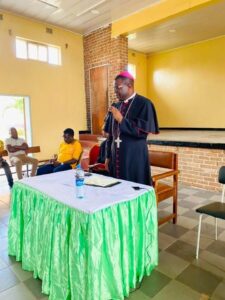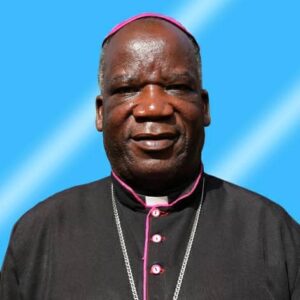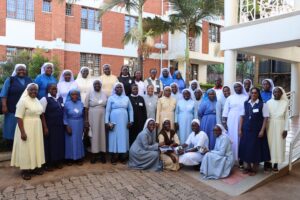KENYA: Holistic Education is Key to Young people in Society: Catholic Prelate

Facilitators during the national Youth Conference
Sr. Jecinter Antoinette Okoth, FSSA
Since the young people have been at the heart of the Church from generation to generation, there is need for their holistic education to develop well rounded adults, Catholic Bishop in Kenya said at a national conference aimed at powering young people’s resilience and dignity in a digital age.
Addressing hundreds of youths who attended the two-day conference convened by Loyola Centre for Media and Communications (LCMC) in collaboration with Inter-Religious Council of Kenya (IRCK), Bishop Alfred Kipkoech Arap Rotich of Kenya’s Kericho Diocese highlighted three areas through which youths need holistic guidance.
In his message the Bishop of Kericho noted that parenting in families, teaching and shepherding by providing chaplaincy services are the key areas that will ensure youths are holistically educated.
To deal with the youths better in an attempt to handle their concerns the Prelate said, there is need to interact with Pope Francis’ Post-Synodal Apostolic Exhortation Christus Vivit (Christ is alive) that calls “all Christian young people” and the People of God, including pastors and the faithful to seek the youthful newness of life in Christ.
For successful parenting of young people Bishop Rotich said while speaking under the sub-theme powering young people resilience on mental consciousness, “It would be ideal to borrow a leaf from the Holy family of Joseph, Mary and Jesus, from where we can derive some unique ideals of parenting.”
“The role of a parent is to assure and ensure protection for their children. The young ones today feel neglected by their parents,” the Prelate said adding that “Parents should teach their children to take responsibility, work, be patriotic and trust God.”
About teaching the youths, Bishop Rotich who serves as the deputy chairperson for the Commission of Ecumenism and Inter-Religious Dialogue at the Kenya Conference of Catholic Bishops (KCCB) said, “Teachers are not only sources of instruction to the student but also, confidants and mentors.”
Even though “most teachers today are teaching as an alternative career hence lack passion and moral fibre associated with teaching,” the Bishop recommends “both the MOE (Ministry of Education) and TSC (Teachers Service Commission) need to “train every teacher in the areas of mentorship and counseling.”
He cautioned that unethical practice of counseling is “as bad as murder,” and this “devastates the young ones and the outcome is fatal.”
Concerning providing chaplaincy services as another key area that contributes towards holistic education of the youths, the Local Ordinary addressing the youths at Hekima Institute of Peace Studies and International Relations (HIPSIR) in Nairobi, advised that “Every parish needs to have a youth office with at least one professional counselor available on call and in person 24 hours a day for the youth to share their challenges.”
“Alongside this, the church should provide a 24/7 toll free line where unanimous counselors are available for guidance. One can call from any part of the country and talk freely regardless of their religious affiliation,” the Bishop said.
He further stressed on Catechesis that should be continuous and not limited to preparation for the sacraments of initiation.
“It is evident that many young ones go to church as matter or routine rather than a deep conviction arising from a need to unite with God. Consequently, the youth are seen to engage in premarital sex, contraception, crime, exam malpractice, and homosexuality while still receiving communion,” Bishop Rotich disclosed sharing his observation that “The queues leading to the Holy communion are quite elongated while those leading to confession boxes have receded over time.”
He emphasized that “The need for confession is completely thwarted hence continuous catechesis will go a long way in enlightening our youth about the need for holiness.”
Additionally, “The youth should be given a free space in every parish where they can meet for their affairs to make the church their second home and be encouraged to use such spaces to nurture talents, conduct seminars or just interact within the precincts of the church.
Other possible ways to support the young people include “giving them frequent and continuous trainings on self-awareness, entrepreneurship, positive use of social media within the church, productive friendships and any other emerging issues of the day,” Bishop Rotich underscored adding that, “Parents and the older generations should be encouraged to appreciate the youth in the church and limit their sense of judgment towards them.”
In conclusion the Bishop who has been at the helm of Kericho Diocese since December 2019 pointed out that the young people “should be assigned responsibilities that put them on the church’s limelight,” at the same time, “Prayer meetings, rallies and spiritual exercises should be normalized and done frequently”


